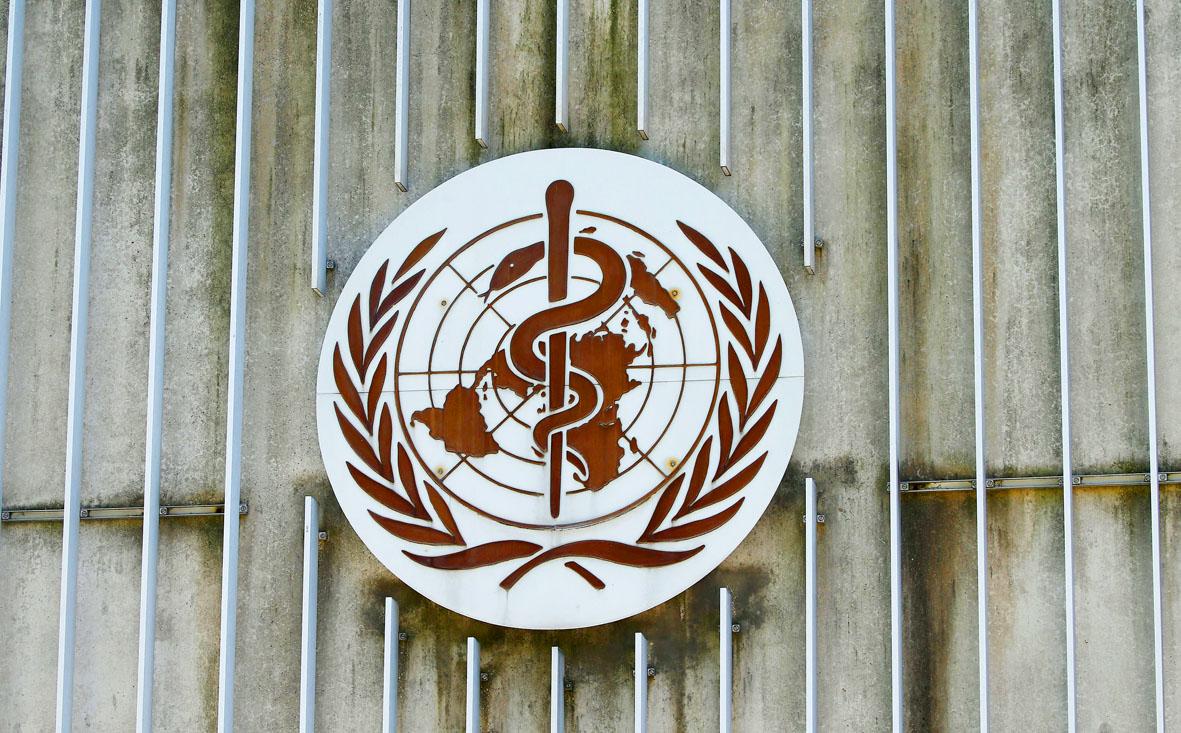The WHO on Thursday said that it had faced an “onslaught” of cyberattacks by activists using key words like “Taiwan,” after the government complained that posts in support of Taiwan were being censored on Facebook.
Taipei has been angered by its inability to fully access the WHO, of which it is not a member due to Beijing’s objections, during the COVID-19 pandemic.
This week it again failed to get into the World Health Assembly, the WHO’s decisionmaking body.

Photo: Reuters
The Ministry of Foreign Affairs said that the blocking of posts in support of Taiwan on the WHO’s Facebook page ran contrary to the neutrality the global health body should be upholding.
“The ministry expresses its strong regret and dissatisfaction,” it said in a statement.
The WHO defended the move.
“During the World Health Assembly, WHO faces an onslaught of cyberattacks by online activists on a number of controversial issues, using keywords such as ‘Taiwan’ and ‘China,’” it said.
That hindered its ability to moderate conversations for people who visited its page to discuss health issues, it said.
When that happened, “our social media team applies content filters,” the WHO added.
“This is a practical measure that does not reflect a value judgement or any policy of the World Health Organization,” it said.
“The aim is to enable our users to avoid being spammed through cyberattacks, including from bots, and to find a balanced way to keep information and conversation flowing,” it said.
It added that it had now restored the ability of users to post the words “Taiwan” and “China.”
The censorship of Taiwan inspired some creative trolling on Thursday, with special characters and foreign scripts called up to bypass the block.
Social media users in Taiwan used extra characters to get around the block, and to proclaim that “Taiw@n can help!” the global health body combat the virus.
Additional reporting by AFP

Beijing could eventually see a full amphibious invasion of Taiwan as the only "prudent" way to bring about unification, the US Department of Defense said in a newly released annual report to Congress. The Pentagon's "Annual Report to Congress: Military and Security Developments Involving the People's Republic of China 2025," was in many ways similar to last year’s report but reorganized the analysis of the options China has to take over Taiwan. Generally, according to the report, Chinese leaders view the People's Liberation Army's (PLA) capabilities for a Taiwan campaign as improving, but they remain uncertain about its readiness to successfully seize

Taiwan is getting a day off on Christmas for the first time in 25 years. The change comes after opposition parties passed a law earlier this year to add or restore five public holidays, including Constitution Day, which falls on today, Dec. 25. The day marks the 1947 adoption of the constitution of the Republic of China, as the government in Taipei is formally known. Back then the Chinese Nationalist Party (KMT) governed China from Nanjing. When the KMT, now an opposition party in Taiwan, passed the legislation on holidays, it said that they would help “commemorate the history of national development.” That

Trips for more than 100,000 international and domestic air travelers could be disrupted as China launches a military exercise around Taiwan today, Taiwan’s Civil Aviation Administration (CAA) said yesterday. The exercise could affect nearly 900 flights scheduled to enter the Taipei Flight Information Region (FIR) during the exercise window, it added. A notice issued by the Chinese Civil Aviation Administration showed there would be seven temporary zones around the Taiwan Strait which would be used for live-fire exercises, lasting from 8am to 6pm today. All aircraft are prohibited from entering during exercise, it says. Taipei FIR has 14 international air routes and

Snow fell on Yushan (Jade Mountain, 玉山) yesterday morning as a continental cold air mass sent temperatures below freezing on Taiwan’s tallest peak, the Central Weather Administration (CWA) said. Snowflakes were seen on Yushan’s north peak from 6:28am to 6:38am, but they did not fully cover the ground and no accumulation was recorded, the CWA said. As of 7:42am, the lowest temperature recorded across Taiwan was minus-5.5°C at Yushan’s Fengkou observatory and minus-4.7°C at the Yushan observatory, CWA data showed. On Hehuanshan (合歡山) in Nantou County, a low of 1.3°C was recorded at 6:39pm, when ice pellets fell at Songsyue Lodge (松雪樓), a